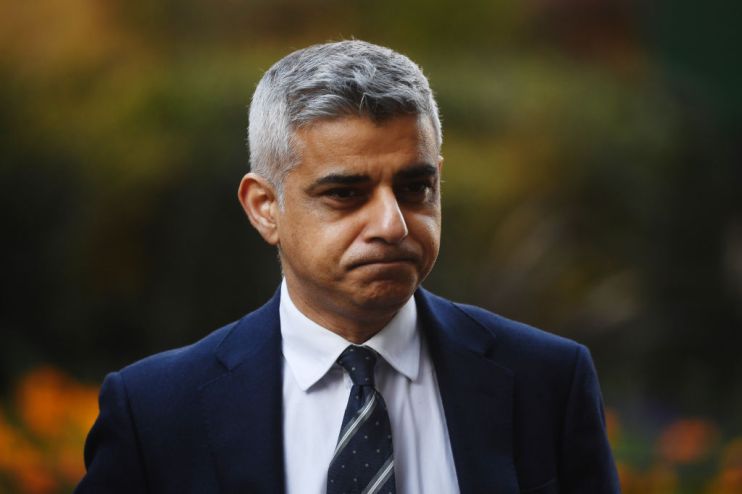Sadiq Khan suggests London tax autonomy in new TfL bailout deal

London mayor Sadiq Khan has suggested that the government should consider giving the capital freedom to spend its own tax takings to fund Transport for London (TfL).
Speaking to the parliamentary transport select committee this morning, Khan said that one of the options for the future funding of the embattled operator should be “proper fiscal devolution” for London.
TfL’s current £1.6bn bailout, which was agreed in May, will cover the network’s finances until 17 October, after which a new deal will have to be agreed, Khan said.
“The government has two options really, looking at how things are done around the world.
“One is for them to give us a grant for the short or medium term to cover the fact that we cannot get the level of fares in at the moment. The second is proper fiscal devolution”, he said.
Khan pointed to a report commissioned by prime minister Boris Johnson while he was London’s mayor which he said was a “good template” for fiscal devolution.
At the moment, Khan said, London is permitted to spend seven per cent of taxes raised int the capital. By contrast, New York spends 50 per cent.
He added that for the short term TfL would likely be dependent on central government assistance, like other transport networks around the world.
Before the Open newsletter: Start your day with the City View podcast and key market data
At the moment, passenger levels on the Tube are 20 per cent down, and bus numbers are down 35 per cent.
TfL is dependent on fares for 70 per cent of its revenues, having had its government operating grant removed in 2018.
As a result of the plunge in passenger numbers, Khan said TfL had lost £600m every month, wiping out its cash reserves and precipitating the need for a bailout.
One of the conditions of the rescue package is a government review into TfL’s finances, with will explore “alternative funding options”.
Khan reiterated his hopes that this would explore the possibility of fiscal devolution, saying that TfL should not be so dependent on fare revenue.
During an occasionally testy session, Khan defended his record at TfL through the crisis, rejecting suggestions that its response had been initially “chaotic”.
He said that TfL had at the peak of the crisis lost almost a third of its staff but had still continued to run 60 per cent of Tube services and 85 per cent of bus services at rush hour times.
Only an “exceptional minority” had been faced with issues while travelling, Khan said, suggesting that a “lack of clarity” in government messaging was responsible for some of the chaos.